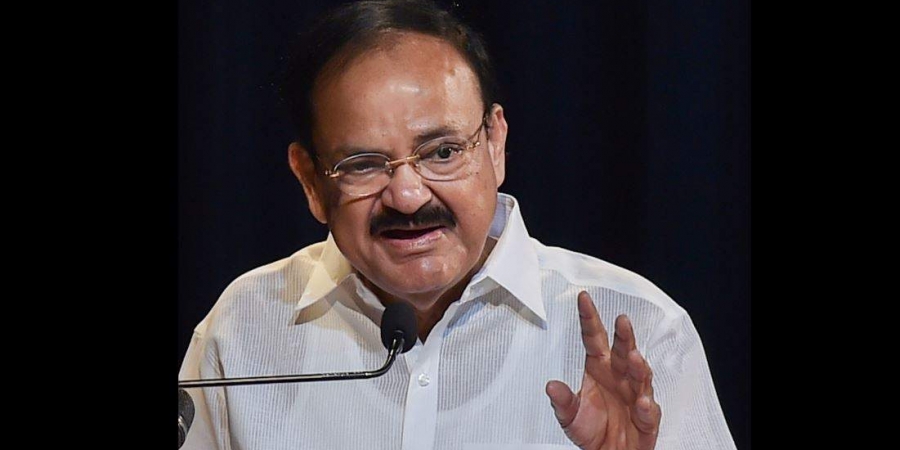NEW DELHI: The SAARC grouping can become an effective and vibrant network to promote prosperity and well-being of a vast population of the region if all the countries come together sincerely to stamp out the scourge of terrorism, Vice President M Venkaiah Naidu said on Friday.
Unless totally wiped out, the menace of terrorism will negate all the efforts to create a prosperous and flourishing future for all the people in South Asia, Naidu said at a virtual event to launch a commemorative postage stamp to honour former prime minister late I K Gujral.
Reiterating that India has always believed in peaceful co-existence with all its neighbours and in maintaining friendly relations, the vice president said, “Unfortunately, the country has been facing relentless state-sponsored, cross-border terrorism for the past several years.”
The vice president also wanted the United Nations to play a more pro-active role and step up its efforts in isolating nations sponsoring terrorist activities and in imposing sanctions against them.
“The conclusion of deliberations at the UN and the adoption of the Comprehensive Convention on International Terrorism cannot brook any further delay,” he said according to an official statement.
The potential and scope for cooperation and development of the South Asian region is huge, Naidu said.
All the countries must seize this opportunity to build a better and brighter future for the people by eliminating barriers like poverty, illiteracy, corruption; providing quality education and healthcare; ending gender discrimination and according priority to enhancing the overall quality of life, he said.
Emphasising that peace and development should take precedence over everything else, Naidu said that “peace is the prerequisite for progress and no development can take place without peace”.
The vice president said that Gujral was a learned man, soft-spoken and a “gentleman-politician”, who never compromised on his values irrespective of the challenges or hardships he faced.
“Bearing an amiable demeanour, he was courteous to a fault and made friends across the political spectrum,” he said.
Appealing to all politicians to consider their opponents as rivals and not enemies, the vice president wanted them to maintain good social relations.
Urging political parties to follow the policy of ‘nation first’, he wanted them to put their differences aside and support foreign policy in national interest.
The vice president also emphasised the need for greater participation of women in leadership roles and expressed happiness that the number of women judges has reached 13 in the Madras High Court, the highest in the country with the elevation of four women to the bench on Wednesday.
Naidu said that the number of women in leadership roles in politics, public administration, corporate governance and civil society organisations has been steadily increasing over the years both in India and the world, but their representation has to be increased further.
Expressing concern over the low representation of women in the legislatures in the states and in Parliament, he called for enhancing it significantly through necessary political and legislative initiatives.
He felt that women are under-represented in the higher judiciary.
The 17th Lok Sabha has the highest number of 78 women members accounting still only for 14 per cent of the total strength, Naidu said.
Maintaining that reservation for women in the local bodies in the country has brought lakhs of women into leadership roles, he called for ending the prejudice against them and added that “it can’t be the men’s world’ any longer”.
Women deserve their share of opportunities to express themselves in all forms in the emerging knowledge society, Naidu said.
Stressing that gender-based discrimination has no justification, Naidu said that on the contrary, giving women their due will “make our homes and the world better places to live”.
He stressed on the need to focus on removing the entry barriers to women and said that women deserve high seats in all spheres of decision-making including the judiciary, legislatures and governance. (AGENCIES)


